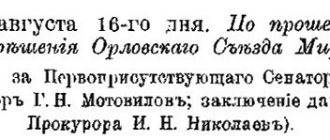Lawyer and protection (representation) of the rights of the victim in criminal proceedings. Part 1.
lawyer Moshkin Vitaly Vitalievich +375296252237, December 10, 2019 Telephone: 375296252237
Minsk City Bar Association, Legal Consultation of the Sovetsky District
According to Art. 2 of the Criminal Code of the Republic of Belarus has the task of
protecting
the peace and security of humanity,
man, his rights and freedoms, property
, rights of legal entities, the natural environment, public and state interests, the constitutional system of the Republic of Belarus, as well as the established legal order from criminal attacks. The Criminal Code of the Republic of Belarus contributes to the prevention of criminal attacks and the education of citizens in the spirit of compliance with the legislation of the Republic of Belarus.
According to Part 1 of Art. 2 of the Code of Criminal Procedure, the objectives of the criminal procedure law are to consolidate the proper legal procedure for carrying out criminal proceedings, ensuring the legal rights and interests of individuals and legal entities who have been caused physical, property or moral harm by a crime
, as well as criminal prosecution and protection of persons who are suspected and accused of committing socially dangerous acts provided for by criminal law.
According to Art. 7 of the Code of Criminal Procedure, the objectives of the criminal process are to protect the individual, his rights and freedoms
, the interests of society and the state through a quick and complete investigation of crimes, socially dangerous acts of the insane, exposing and bringing to justice the perpetrators;
ensuring the correct application of the law so that everyone who commits a crime is fairly punished and no innocent person is prosecuted and convicted. It is obvious that the concept of personal protection means the protection of all participants in the conflict.
process, including the victim, which is also directly enshrined in paragraph 49 of Art. 6 of the Code of Criminal Procedure, where as a participant in the process, the victim is directly indicated. As rightly stated in paragraph 19 of the resolution of the Plenum of the Supreme Court of the Republic of Belarus No. 6 of June 30, 2005 “On the practice of applying the norms of the criminal procedure code regulating the participation of the victim in criminal proceedings” (paragraph 19) (verbatim) - draw the attention of the courts that the victim is the only participant in the process directly affected by the crime, and therefore ensuring the protection of his rights and legitimate interests takes on special importance
.
According to Part 5 of Art. 50 of the Code of Criminal Procedure, the victim enjoys his rights and fulfills the duties assigned to him personally or through his representative
.
However, in practice, firstly, not all victims fully enjoy their rights, and secondly, the stereotype continues to apply that a victim does not need to turn to a lawyer for legal assistance, at least if only to prepare and/or file a claim for compensation for damage, especially moral damage; thirdly, the lawyer cannot help the victim and does not do this. But this is not so, and it would be high time for the victim to overcome the stereotypes of the approach of necessity or legal assistance from a lawyer and leave them in the past.
What is the reason for this stereotype? There are many factors here, of which two main ones can be distinguished. First, during the Soviet period, the assistance of a lawyer to a victim was not really practiced. The second is the stereotype that has developed in the public consciousness that a lawyer is primarily (more precisely, almost the only) defender in criminal proceedings or a representative in civil (or economic) proceedings. However, this is not entirely true, since the word lawyer itself comes from the Latin word “advoco” which means “I invite” “to call for help”, i.e. this is an assistant, a representative in court, and according to Art. 1 of the Law “On the Bar and Legal Activities in the Republic of Belarus” legal assistance is an activity to assist clients in understanding, correct use and compliance with the law, which is aimed at implementing and protecting the rights, freedoms and interests of clients, as well as representing clients in courts, state authorities, other organizations and individuals. Those. the law, without any reservations, establishes that legal assistance is an activity aimed at implementing and protecting the rights of everyone without physical restrictions. persons, respectively, and victims in criminal proceedings.
In this regard, taking into account the above-mentioned rules of law, one cannot help but come to the conclusion that the victim cannot be limited in the assistance of a lawyer, including in representing his interests in the criminal prosecution authorities or in court for any ethical reasons related to the fact that the representative of the lawyer, by virtue of the provisions of paragraphs. 39.40 art. 6, part 3 art. 24 of the Code of Criminal Procedure and the very essence of the position of the victim and his interests, acts on the side of the prosecution (the victim is also a participant in the criminal process on the side of the prosecution), supports the prosecution, including by exercising the powers granted to him by law (Article 59 of the Code of Criminal Procedure), while, most often, in other ug. in trials he acts as a defender of the suspects or accused.
Often the victim turns to a lawyer for help only when he does not want to participate in the crime himself. process, especially in court, for various reasons, especially due to reluctance to meet with the accused or to bring up the unpleasant aspects of what happened, etc. This is understandable and quite reasonable, however, a representative can participate in the negotiations. process and in the event that the victim personally fully participates in participation in the process at all its stages, i.e. at the request of the client (victim), the lawyer can be his representative and with his (victim) personal participation in the process.
At the same time, these powers (of the victim’s representative) are by no means formal
, in particular, the representative has the right to know the essence of the accusation, give explanations, present evidence, and object to the actions of the criminal justice body. prosecution, court or other participants in the process, challenge, file applications and complaints, get acquainted with the protocols of investigative actions with the participation of him or the victim, and at the end of the preliminary investigation, get acquainted with the materials of the criminal investigation. the case in full, participate in the consideration of the case in court, etc. This is very important because... whether an investigator, a prosecutor or a judge are still people, they are not victims of a crime, and as you know, we are all different and no one is immune from certain shortcomings or mistakes, especially since, so to speak, the body of the criminal justice system. prosecution is primarily “tailored” to solving a crime, and the court, when considering a case, is to comply with procedural norms governing the trial, ensuring the rights of the accused as the participant most often interested in the outcome of the case. process. In practice, this can result in the fact that many important points for the victim will not be raised due to inattention during the investigation of the crime. case or consideration of a criminal case. cases in court to certain points that are important specifically for the victim, or even a frankly superficial investigation of the criminal case. cases to the detriment of the interests of the victim, haste in clarifying all the circumstances of the harm and its nature, etc., ignoring a number of circumstances of the case that are favorable specifically for the victim, etc. Sometimes absolutely unacceptable situations arise when the organ prosecution may unreasonably raise the question or even make a decision to terminate the criminal prosecution of a suspect or accused who, in the opinion of the victim, has committed a criminal act against him (in cases specified by law - in relation to his relatives).
It is also important to remember that the participation of the victim’s representative in the case. process is not mandatory, however, the authority of the ug. prosecution or the court has the right to oblige him to appear when summoned by the body conducting the criminal proceedings in order to protect the interests of the person he represents (Part 3 of Article 59 of the Code of Criminal Procedure). However, in practice this is extremely rare, and, as a rule, only affects some courts. meetings and only if the victim himself is exempted from appearing in court. meeting (part 2 of article 296 of the Code of Criminal Procedure).
If you have been harmed by a crime, then before a criminal case is initiated and you are recognized as a victim in the prescribed manner (Part 1 of Article 49 of the Code of Criminal Procedure), you have the right to use the legal assistance of a lawyer when reporting a crime and conducting the so-called. pre-investigation check as a representative of the applicant, and then, the same lawyer, after recognizing you as a victim in a criminal case, on your behalf, can act as a representative of the victim and, if necessary, as your representative as a civil plaintiff in one person.
A completely reasonable question may arise here: does the victim need the assistance of a lawyer in criminal proceedings? After all, there is an investigator and a prosecutor. The answer is simple. This 1) depends on the specific circumstances of both the case itself and the position of the victim in it, his ability to fully independently protect his rights 2) in any case, it can and should be an exclusively conscious choice (decision)
the victim himself (or his legal representatives (when the victim is a minor or incapacitated due to illness, etc.). When making a final decision, it should be taken into account that, as stated above, the criminal prosecution body may not take into account issues that are specific to the victim, and sometimes of fundamental importance specifically for the victim. You also need to understand your capabilities to correctly make a decision on filing a civil claim, or not filing one, refusing such a claim, formulating and justifying your claims for a civil claim in criminal proceedings. As a result, not repeating what was said above, the criminal prosecution body during the preliminary investigation does not always take into account a number of circumstances that are significant specifically for the victim, and in the courtroom many things that the victim would like to convey to the court are not always disclosed, directly affecting the correct qualification of the crime, the degree the guilt of the accusation, the nature and extent of the harm caused, including moral. In addition, often only in the courtroom, the accused, wishing to mitigate his responsibility, can himself, or through his relatives or friends, take measures to compensate for the harm, for which, due to a difficult psychological or factual situation, the victim is desirable, if not absolutely necessary, a professional representative, who will help to conduct such negotiations on the side of the victim, suggest how to legally accept compensation for harm, avoid unnecessary conflicts, etc.
You should also not be embarrassed to seek help from a lawyer, because a lawyer is your trusted confidant, he has encountered different life situations, and is called upon to help and support you in a difficult situation for you, because Even for a literate and educated person, for a variety of reasons, it is not always easy to independently participate and, moreover, defend one’s rights as a victim in criminal proceedings. It should also be understood that neither the profession, nor the education of the victim, nor the category of the crime committed in relation to him, etc. factors do not limit the victim’s right to have his own representative or even several representatives.
Moreover, although this happens extremely rarely, the victim has the right to support the accusation even if the prosecutor refuses the accusation (Part 8 of Article 293 of the Code of Criminal Procedure) and for any category of criminal offenses. business
In addition, in cases of private prosecution (Chapter 44 of the Code of Criminal Procedure), the victim independently or only with the help of his representative presents the accusation, without the participation of the prosecutor.
You should also know that if the accused is found guilty, grounds arise for collecting from him the costs of the victim for providing him with legal assistance by a lawyer both at the stage of the preliminary investigation and in court, regardless of whether a civil claim was filed in such a criminal proceeding , and whether there were grounds for it.
What does a victim need to know and understand when seeking help from a lawyer (to summarize)? In short:
1) that the representative of the victim acts on the side of the prosecution (paragraphs 39, 40, Article 6, Article 24 of the Code of Criminal Procedure);
2) that the lawyer must act exclusively in the interests of the victim, he does not have the right to sacrifice your interests under any circumstances, including not to sacrifice them either in the name of friendly relations with colleagues in the legal profession (for example, a defender of a suspect, accused), or in the name other relationships, etc.;
3) that the lawyer is obliged to comply with the Rules of Professional Ethics for Lawyers, the requirements of criminal procedure legislation, and this, in particular, also means that the lawyer cannot mislead the victim regarding the circumstances of the case, cannot take a position contrary to the position of the victim, etc.;
4) that the victim is allowed to participate in criminal proceedings from the moment a decision is made on this or a determination is made by the body conducting the criminal case. process (Part 1 of Article 58 of the Code of Criminal Procedure), which, however, can be issued no earlier than recognizing the person as a victim under the Criminal Code. process (part 1 of article 49 of the Code of Criminal Procedure);
5) that the representative of the victim may be obliged to appear in court or the criminal prosecution body to protect the interests of the victim (clause 2, part 3, article 59 of the Code of Criminal Procedure). Although, this is rare in practice, and usually occurs only when the victim himself cannot take personal part in the crime. process in necessary cases;
6) that the representative of the victim is endowed with broad procedural powers, which actually coincide in scope with the powers of the victim himself. At the same time, personal participation in the proceedings of a criminal case during the preliminary investigation or in court by the victim himself does not exclude his right to have his own representative;
7) that the representative of the victim can simultaneously be a representative of the same victim as a civil plaintiff in criminal proceedings (Articles 50, 52-53 of the Code of Criminal Procedure);
8) that the costs of paying for the assistance of a lawyer as a representative of the victim, it does not matter whether a civil claim was filed in a criminal proceeding or are subject to recovery from the accused (upon his conviction).
In subsequent articles we will talk about the raised and other issues regarding the participation of the representative in the coalminer. process in more detail.
In conclusion, let us again somewhat paraphrase the well-known saying - not only know about your rights, but also fully use the right. Moreover, on the issues under consideration, the law has done quite a bit to facilitate this task.
In my previous articles on this site, I also dwelt in detail on the aspects of recovery of damage caused by a crime, especially moral damage. I announce the continuation of the conversation on this topic. I am lawyer Vitaly Vitalievich Moshkin. Cont. tel.+375296252237, +375295625329
viber +375296252237
Sincerely, Blog Moshkin Vitaly Vitalievich +375296252237
Responsibilities of the victim
These include the citizen’s obligations to cooperate with law enforcement agencies, as well as to appear at the department at the appointed time to give evidence. He must also provide evidence and not hide it.
The duties also include that a citizen should not give false information about the case , about which he is warned in advance. However, it is not the responsibility of the victim to testify against himself or his relatives. This is also provided for in Art. 51 of the Constitution of the Russian Federation.
He is also obliged to keep secret information that is relevant to the case. If he begins to disclose it, he will be held liable under Art. 310 of the Criminal Code of the Russian Federation.





